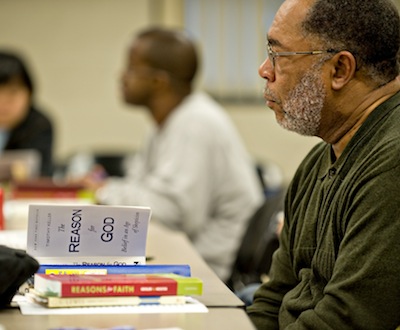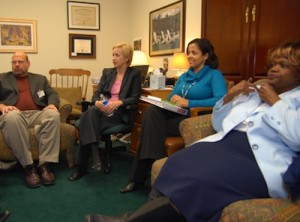(Continued)
[blockquote]Every cultural practice and value must be carefully evaluated from schemas constructed from a biblical worldview.[/blockquote]
 My friend, however, is proposing a second definition of multiculturalism. I understand his argument. He preaches a multicultural ethic that begins with the postmodern assumption that truth itself is multicultural. In this view, since there are multiple worldviews and multiple views of reality, then no single worldview can be correct. That means that there are no truths that transcend culture and that no culture transcends any other culture. All cultural systems, like all personal truths, are equally valid. There are also no transcendent morals. Therefore, the only moral virtue that is absolute is tolerance of every culture and every cultural truth.
My friend, however, is proposing a second definition of multiculturalism. I understand his argument. He preaches a multicultural ethic that begins with the postmodern assumption that truth itself is multicultural. In this view, since there are multiple worldviews and multiple views of reality, then no single worldview can be correct. That means that there are no truths that transcend culture and that no culture transcends any other culture. All cultural systems, like all personal truths, are equally valid. There are also no transcendent morals. Therefore, the only moral virtue that is absolute is tolerance of every culture and every cultural truth.
As it turns out my friend’s multi-cultural model is not as pristine as he claims. It is overtly hostile to the gospel of Jesus Christ and to the biblical notion that declares that God is Lord over the world and every culture within the world. If he were consistent in his assumption, he would leave me in peace to my own way of thinking, even if he thinks it is silly. Instead, he continually tries to persuade me that my truth is the only bad truth. The problem is not that Christian scholars are out of epistemological step with academia because they stand for the notion of truths or absolutes, but because they stand for a specific truth. Paul expresses it this way: “I did not come with eloquence or superior wisdom as I proclaimed to you the testimony about God. For I resolved to know nothing while I was with you except Jesus Christ and him crucified…. My message and my preaching were not with wise and persuasive words, but with a demonstration of the Spirit’s power, so that your faith might not rest on men’s wisdom, but on God’s power” (1 Cor. 2: 1-5, NIV).
Paul is writing to persons living in a hotbed of religious and cultural pluralism. The tone of Paul’s letters to the church in Corinth attests to how difficult it was for the Christians there to not be inundated by the clashing worldviews. Interestingly, Paul does little to embrace the culture. In fact he does not even argue with the culture. He bypasses it and offers its citizens an entirely different kind of wisdom, empowered not by human reason but the power of God’s Spirit. His message was simple and powerful. It was anything, however, but tolerant.
 Likewise, a biblical university is not grounded in the notion of truth as much as it is grounded in the declaration that Jesus is Savior and Lord. This Lordship over everything is certain because He is the Creator of humanity, giving humanity the capacity to form culture and because he offers to redeem humanity and redeem a fallen culture that is in the hands of the enemy of God and man. In other words culture is both a human activity and a spiritual activity. This is my most fundamental assumption and the one that my friend rejects completely. In a post-modern world, however, there are few truths and many perspectives. At PBU, training students to be professional counselors appreciating multiculturalism is more than disabusing them of a one world-one culture perspective; it is about the need to separate truths from cultural practices and preferences. Yes there are truths. That means that counselors begin not with understanding their own cultural bias but by critiquing their cultural bias from higher ground.
Likewise, a biblical university is not grounded in the notion of truth as much as it is grounded in the declaration that Jesus is Savior and Lord. This Lordship over everything is certain because He is the Creator of humanity, giving humanity the capacity to form culture and because he offers to redeem humanity and redeem a fallen culture that is in the hands of the enemy of God and man. In other words culture is both a human activity and a spiritual activity. This is my most fundamental assumption and the one that my friend rejects completely. In a post-modern world, however, there are few truths and many perspectives. At PBU, training students to be professional counselors appreciating multiculturalism is more than disabusing them of a one world-one culture perspective; it is about the need to separate truths from cultural practices and preferences. Yes there are truths. That means that counselors begin not with understanding their own cultural bias but by critiquing their cultural bias from higher ground.
A biblical worldview does not simply embrace cultural diversity; it engages diversity in a dialogue about truth. Jesus saw truth not as a force that brings us all together into peaceful coexistence, but as something that sheds light on what is wrong with people and culture and calls men and women to take sides, not simply take down walls. Paul makes a similar statement when he describes the biblical message as nothing less than a form of warfare. “For though we live in the world, we do not wage war as the world does. The weapons we fight with are not the weapons of the world. On the contrary, they have divine power to demolish strongholds. We demolish arguments and every pretension that sets itself up against the knowledge of God, and we take captive every thought to make it obedient to Christ” (2 Corinthians 10:3-5 NIV).
From Paul’s vantage point, core cultural values are never neutral. In fact, he treats them as possible competitors for truth. He describes them as “pretentious,” something that has the appearance of truth, but is often an enemy of the truth. Moreover, these truths are in direct opposition to a knowledge of God. If you take Paul’s meaning, the pretense isn’t mere happenstance; it is premeditated, designed to seem plausible while at the same time obscuring the facts as God sees them. A biblically minded university must be committed to viewing a dialogue with the prevailing culture not as gathering for an afternoon tea, but a skirmish in which teaching from a biblical worldview engages in a dialogue designed to challenge an enemy’s hold over the minds of men and women.
From the perspective of a multicultural worldview, there are no truths and everything is relative; from Paul’s standpoint, if Christians are to take every thought captive, then that means nothing is ultimately relative and every cultural practice and value must be carefully evaluated from schemas constructed from a biblical worldview. Taking Paul’s thought further, there is a spiritual dimension to this integrative process that isn’t morally or motivationally neutral. Every cultural system has elements that set themselves up against the knowledge of God through the ways that they become instantiated in cultural practice. The work of integrating a biblical worldview into the considerations of cultural practice extends far beyond simply becoming aware of my own cultural bents; it begins with a careful consideration not of how I am asserting my culture over another, but with asking whether I am asserting my cultural values against God’s view and His values.

[framed_box]Jeff Black, Ph.D., is the Chair of the Department of Christian Counseling. He has taught at PBU since 2005. He is a licensed psychologist. Jeff also serves as an Associate Pastor at Calvary Chapel in Philadelphia.
[/framed_box]